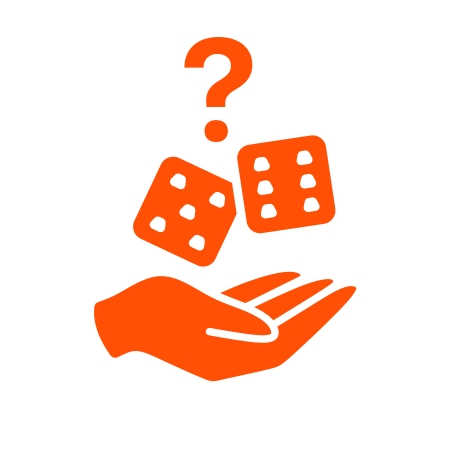Master Value Betting Your Guide To Sports Betting Value
What Does Value Betting Mean?
Value betting is when a player receives better odds than they should on the outcome of an event. For example, a coin flip always has a 50% chance of landing on heads or tails. The true odds on each side should be even money, or +100 (bet $100 to win $100).
If the odds on offer were instead +120 (bet $100 to win $120) on heads, this would be a value bet. That’s because you’re betting on odds that are higher than the actual odds of the coin landing on heads.
Now, let’s apply that same concept to sports betting.

Value Betting in Sports
Sports betting value is less concrete than coin flips. For example, it’s almost impossible to quantify exact odds like the Philadelphia Eagles covering a 6.5-point spread or the Los Angeles Dodgers winning on the moneyline. However, the point is that betting odds offered on any event still have implied odds, which serve as the break-even point.
Consider the standard -110 (Bet $110 to win $100) price that typically comes on both sides of a point spread wager in football or basketball. At this price, the implied odds are 52.38%, which is also the bet’s break-even point. If you have strong reason to believe the Eagles -6.5 has better than a 52.38% chance of winning, this play would be a value play if your calculations are correct.
Check out The Sports Geek’s Sports Betting Odds Calculator to find the implied odds on any wager. You can also dive into this guide on how betting odds work for more useful details and strategies. In the next section, we’ll go over the difference between fair, negative and positive expected value in sports betting.
What is Expected Value in Sports Betting?
The expected value (EV) of a bet is the difference between your expectations for an event’s outcome versus the odds offered by the sportsbook. Calculating expected value in sports betting is a crucial factor in determining that outcome’s probability and, therefore, whether the bet is worth taking.
You can calculate EV by comparing the true odds of an outcome to the betting odds on offer. The mathematical equation to solve for expected value is as follows:
Expected Value = (Probability of Win x Total Payout for Win) + (Probability of Loss x Total Payout for Loss)
The EV of a bet can be fair/neutral, negative, or positive. In this section, we’ll explain the difference of these three value types using the example of a coin flip where your odds are -110, +100, or +110.
- Positive EV: A wager that is projected to be profitable in the long run
- Negative EV: A wager that is projected to lose money in the long run
- Fair or Neutral EV: A wager that is projected to break even in the long run
Remember that in sports betting, you won’t know the true odds of a potential outcome, so solving for EV is not an exact science. However, the more accurately you can assess value, the more likely you’ll generate positive EV in sports betting.
What is Fair Expected Value?
Suppose you bet $100 to win $100 on heads at +100 across 100 coin flips. If 50 flips land on heads and 50 flips land on tails:
- 50 Heads Wins = $5,000 ($100 x 50)
- 50 Heads Losses = -$5,000 (-$100 x 50)
- Net Wins $5,000 – Net Losses $5,000 = $0 total
This is a break-even proposition with a fair or neutral expected value. Over the long run you will neither win nor lose money on this bet. The same result is reflected using the EV equation:
- Probability of Win: 0.5 (50%)
- Total Payout for Win: $200 ($100 stake and $100 profit)
- Probability of Loss: 0.5 (50%)
- Total Payout for Loss: $0
- EV = (0.5 x $200) + (0.5 × 0) = $100. Since the expected return on this $100 bet is $100, you have a neutral EV wager.
What is Negative Expected Value?
This time, you are betting $110 to win $100 on heads at -110 across 100 coin flips. If 50 flips land on heads and 50 flips land on tails:
- 50 Heads Wins = $5,000 ($100 x 50)
- 50 Heads Losses = -$5,500 (-$110 x 50)
- Net Wins $5000 – Net Losses $5,500 = -$500 total
- -$500 divided by 100 = -$5 per flip
- EV = (0.5 x $210) + (0.5 × 0) = $105. Since the expected return on this $110 bet is $105, you have a negative EV wager.
Losing $5 on every $110 wagers works out to a negative expected value of -4.55%. This example illustrates why most sports bettors are not profitable. Spreads and totals, which are generally considered to be 50/50 propositions, come at a price of -110, making them negative EV wagers for bettors who aren’t winning at an above-average rate.
What is Positive Expected Value?
Lastly, you can bet $100 to win $110 on heads at +110 across 100 coin flips. If 50 flips land on heads and 50 flips land on tails:
- 50 Heads Wins = $5,500 ($110 x 50)
- 50 Heads Losses = -$5,000 (-$100 x 50)
- Net Wins $5,500 – Net Losses $5000 = +$500 total
- +$500 divided by 100 = +$5 per flip
- EV = (0.5 x $210) + (0.5 × 0) = $105. Since the expected return on this $100 bet is $105, you have a positive EV wager.
In this scenario, you now have a positive expected value of 5% on this wager. Even though the true odds on the coin flip remained the same in all three examples, the expected value on the bet changed drastically based on the betting price you received.
EV Is About Probability, Not Odds Prices
It’s important to note that not all underdog odds with high “+” odds have positive expected value, or that all favorites with short “-” odds have negative value. Value always directly correlates to true odds.
For example, consider the roll of a fair 20-sided die. The true odds of rolling a 20 are 1 in 20, or 5%. The odds of rolling a number between 1 and 19 are 19 in 20, or 95%. As such, the fair odds for rolling a 20 would be +1,900, and fair odds for rolling 1–19 would be about -1,900.
If a sportsbook offered -1,500 on 1–19, some bettors might not take it, as they’d worry about getting unlucky with rolling a 20 after they laid so much to win so little.
But this is a clearly positive expected value play. Consider betting $1,500 to win $100 on 100 hypothetical rolls, with 5% landing on 20 and 95% landing on 1–19:
- 95 Wins = $9,500 ($100 x 95)
- 5 Losses = -$7,500 (-$1500 x 5)
- Net Wins $9500 – Net Losses $7,500 = +$2,000 total
- $2,000 divided by 100 = +$200 per roll
$200 profit per roll divided by $1,500 per wager reveal that this bet has a sensational positive EV of 13.33%. Of course, this doesn’t mean you should bet on all huge favorites, either. It simply shows that value bets can come at any price if the payout compares favorably to the true odds. Finding sports betting value is difficult, but not impossible.
Why Do Value Bets Exist?
Sportsbooks are very good at setting betting lines as accurately as possible. They have dedicated teams keeping up with current news and advanced algorithms to analyze matchups. However, even the best sports betting sites aren’t always perfect, and those imperfections create valuable betting opportunities. Here are a few of the main reasons why value betting in sports exists.
1. The Oddsmakers Aren’t Perfect
The more important a game is, the less likely oddsmakers are to make mistakes. Consider regular season NFL games, major sport playoff games, and prime-time games between popular teams. Sportsbooks dedicate heavy resources to these important games to craft incredibly accurate lines.
Even then, nobody’s perfect, especially when you think about how many sporting events there are throughout the year. Major leagues like the NBA, NHL, and MLB each have well over a thousand games in a regular season. College sports have thousands of games across multiple conferences. Soccer has hundreds of games across dozens of countries, not to mention less popular sports like golf, tennis, MMA, and more.
And in addition to simple moneylines and totals on these events, many sportsbooks today are also offering props, futures, and live betting options as well. There are simply not enough resources at a sportsbook’s disposal to get all of these betting lines perfect every time. Sportsbooks use higher margins and lower betting limits on some markets to counteract these flaws, but there is still value to be found for players even with these extra measures in place.
2. You’re Essentially Betting Against the Public
Betting sites generally aim to limit their own risk on any given game or event by trying to encourage balanced betting action on both sides. Too much action on one side could leave the sportsbook vulnerable to a big financial loss if that side wins. For example, if a sportsbook took $2 million dollars in bets on the Seattle Mariners at +100 and only $500,000 in bets on the Texas Rangers at -120, that book would lose $1.5 million ($2 million – $500,000) if the Mariners won.
On the other hand, imagine if $1.1 million was wagered on the Mariners at -110 and $1.1 million was wagered on the Rangers at -110 as well. In this scenario, the sportsbook would collect $1.1 million in losing bets and pay $1 million in winning bets to clear $100,000 in profit regardless of which team won. This guaranteed win would clearly be the preferable situation for a betting site.
But even betting action on both sides is a rare occurrence. It isn’t uncommon to see one side receiving 60%, 70%, or even 80% of the action on a spread or total, especially if one of the teams involved is popular nationally or on a hot streak.
In an attempt to balance out the betting action, bookmakers frequently make adjustments to their betting odds in attempt to entice bettors to place money on the other side as well. This is why you often see moneyline prices and spreads change in the days and hours leading up to a game.
Even if the oddsmakers’ models had the true odds projected accurately, the actual odds available may wind up being drastically different due to how the public bet. These public line shifts can create value betting opportunities that may not have otherwise been there.
3. Adjustments To Breaking News
Oddsmakers will quickly take lines down or adjust them in the event of breaking news that impacts the game, such as an injury or trade. And similar to how they’re not perfect as creating lines due to finite resources, they’re not perfect as adjusting them, either. A betting line that doesn’t accurately reflect a key news update may have a clear value bet for or against the impacted side.
Now that you understand why value bets exist, let’s go over some strategies for finding sports betting value.
How To Find Value in Sports Betting?
A successful sports value betting strategy involves taking advantage of the tools and resources at your disposal. Here are our tips for finding the best value bets in sports betting.

1. Learn To Think in Probabilities
Many casual sports bettors focus on predicting the outcome of an event. Instead of playing guessing games, try breaking down each possible outcome into assigned probabilities.
Here’s an easy way to train your mind to think in probabilities. Imagine the same game was played 100 times, like the Los Angeles Dodgers versus the San Diego Padres. How many times do you think each team would win? How often would the score go over or under the posted total?
Let’s say you believe the Dodgers would win 60% of the time. You can then check The Sports Geek’s Sports Betting Odds Calculator. It’ll tell you that with those implied odds, the break-even odds on this bet would be Los Angeles -150 and San Diego +150. Now, you can compare these odds to your sportsbook’s offerings to see if either side is a value bet.

2. Become an Expert in a Certain Sport/League
Oddsmakers need to provide betting lines for all available sports. This requirement spreads their resources thin across the various leagues and sports instead of focusing on any particular area.
You, as a sports bettor, don’t have these limitations. You don’t have to study and bet on every team and sport. Instead, you can become an expert on the teams, leagues, or bet types you care about. Doing so helps you identify positive EV spots, especially when the public forces the line to move in the wrong direction.
Browse through our sports betting strategy page for general tips on improving your handicapping skills. You can also visit these sports-specific pages to start honing your expertise in your preferred category:
3. Develop a System and Keep Detailed Records
Once you have started thinking in terms of probabilities and focused your energy on becoming an expert on a sport, team, league or player, it’s time to start collecting data.
What type of bets are you placing? What perceived edge do you believe that you have on these bets? Are you winning or losing money? Whatever value betting system or strategy you develop, keep detailed records on the bets you track or place. This way, you can identify what is working and what isn’t and make adjustments to your systems accordingly.

4. Get Some Help From The Geek
Our sports betting experts and AI algorithm (aka the Geek) seek out value betting opportunities in sports betting. Get daily free picks on The Sports Geek picks page that you can cross-reference with your own sports handicapping strategies.

5. Line Shopping and Odds Comparison
Every slight deviation to betting lines changes a value bet for better or worse, and those differences add up in a hurry. That’s why it’s great you’re not limited to just one sportsbook. Having accounts with two or more trusted betting sites lets you compare lines and place bets at the best price. You can also claim extra welcome bonuses when signing up at a new betting site.

6. Use the Kelly Criterion for Bankroll Management
Proper bankroll management is vital to long-term success in sports betting. Even if can identify positive expected value spots consistently, stretches of bad luck will happen. Managing your bankroll responsibly will help you to weather storms and come out on top over time.
As you get better at accurately identifying value bets, you may want to use a betting system like the Kelly Criterion. This method takes your bankroll and projected edge into account to help you determine an optimal bet size. Bettors who find the standard Kelly Criterion too aggressive could take a steadier approach by using a half-Kelly or quarter-Kelly.
For details on the Kelly Criterion formula and other useful betting tools, visit our sports betting math page.

7. Stay Disciplined and Don’t Bet With Emotion
Even the most profitable value betting system can fall prey to human error. Losing streaks can lead to frustration and reckless attempts to recoup losses. Even winning streaks can lead to reckless betting, with players getting overconfident and betting above their means.
Don’t let your emotions impair your judgment or decision-making. Stick to logic and reasoning when handicapping games. When your emotions start to get the best of you, take a break. You can always get back to it when you’re feeling betting.
Other Useful Strategy Guides
Here are some other guides you may find yourself in forming your betting strategy:
Hedging Your Bets Find out how to bet on opposing outcomes to guarantee a profit or minimize losses.
Units in Sports Betting Discover how to track your bets by organizing your bankroll into units.
Sweetheart Teasers Learn what a sweetheart teaser is and if you can find betting value in this type of wager.
Value Betting Key Takeaways
Sports betting value isn’t always easy to find. It takes a lot of hard work to become an expert in a category, always think in probabilities, and find good value betting opportunities. That said, you now have the knowledge and the tools necessary to find positive expected value in betting. Even if your calculations aren’t always correct, practicing the value betting tips covered on this page should make you a more profitable sports bettor in the long run.






